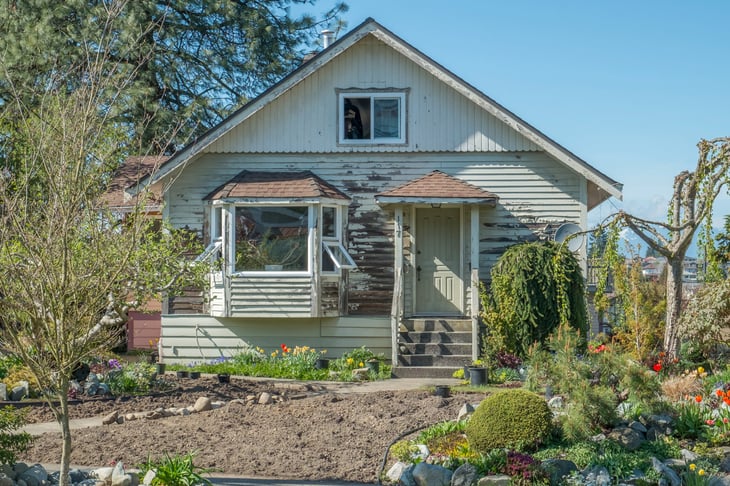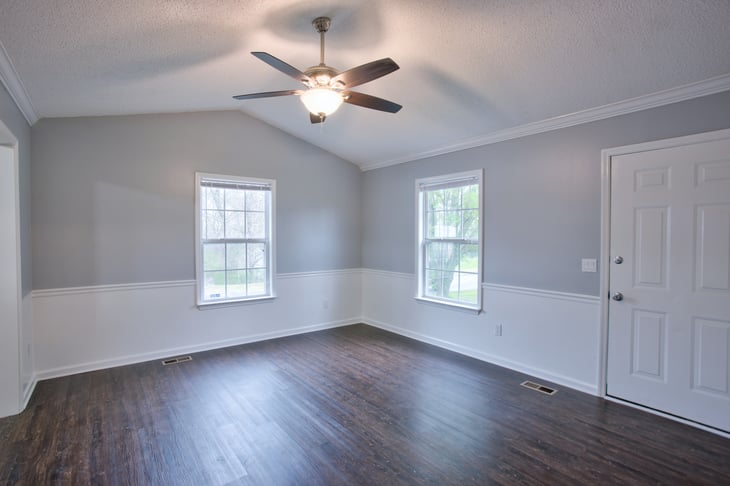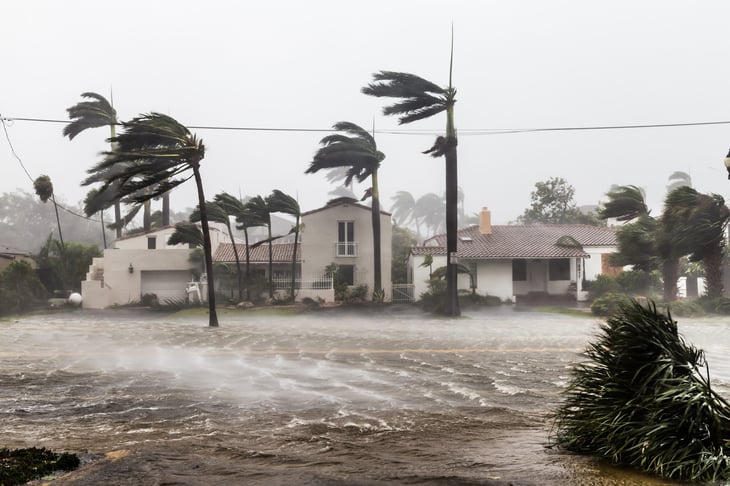
When hail dents your siding or a tree falls on your roof, you’ll be glad you have homeowners insurance. However, companies aren’t required to provide you with coverage.
In fact, they can even cancel a policy in the middle of a term if they discover a change in circumstances that means an increased risk of a claim.
Amy Danise, chief insurance analyst for Forbes Advisor, says insurers can typically cancel a homeowners policy for any reason within 59 days of it being issued. After that, a company usually can only cancel if premiums aren’t paid, there is a change at your property or the insurer discovers you misrepresented something on your application.
If your insurance is canceled, you should receive a 30-day notice to find new coverage. But other insurers may balk at offering a policy to someone who had their prior plan revoked.
You can avoid that situation by understanding the following red flags that could cause a company to cancel your policy, according to insurance industry experts.
1. Trampolines and swimming pools

Something as simple as putting up a trampoline or installing a swimming pool could put your homeowners insurance in jeopardy.
That’s because insurers know these features come with the risk of a major injury or drowning, says Pat Howard, property and casualty insurance expert at Policygenius, an online insurance marketplace. “In addition to increasing the risk of an accident, insurers have found that trampolines and pools also increase the chance of high-dollar claim payouts compared to other liability risks,” he tells Money Talks News.
It’s best to notify your insurer in advance of your plans to add either to your property. If an insurer doesn’t want to cover a pool or trampoline, they may be willing to adjust your policy to specifically exclude claims related to them.
2. Running a business out of your home

Certain home businesses, such as day cares, could be grounds for a policy cancellation, but typically only if you fail to disclose it to your insurer, according to Howard.
Don’t think you can hide it either. “Insurers have a way of finding out about these things during underwriting or between policy terms if they decide to conduct an in-person inspection,” Howard says, “so it’s best to just be as honest as possible with them during your application process.”
3. A felon in the house

Sometimes, it’s who lives inside a home that can be a problem. An insurer might decide to cancel a policy if it discovers someone in the household has been convicted of a felony such as arson, Danise tells Money Talks News.
Insurers can’t cancel coverage midterm if the felony was disclosed in your initial application and they chose to issue a policy anyway. However, companies can cancel the insurance if such information was omitted or if someone with a felony conviction moves in at a later date.
4. Crime in the area

A rash of crime in your area may not result in an immediate cancellation, but it could affect your coverage going forward.
Sometimes, though, an insurance company may simply decline to renew your policy if they believe you live in a high-risk area. In that case, you may need to work with an independent agent to shop around for other coverage.
If no company wants to take the risk, your state may offer Fair Access to Insurance Requirements (FAIR) Plans that cover those who can’t buy insurance through no fault of their own.
5. The wrong breed of dog

Many companies don’t want to insure homes with dogs that they deem to be aggressive or unpredictable.
“Some home insurance companies maintain lists of dog breeds that they won’t insure,” Danise explains. “If you have one of these breeds, you could be denied coverage, or you may have to exclude your dog from liability coverage.”
Not every insurer has a list of banned breeds, but among those that do, Forbes Advisor found the following breeds were most often included. The percentage indicates what percent of the insurers’ lists banned a particular breed.
- Pit bull — 100%
- Rottweiler — 100%
- Doberman pinscher — 100%
- Chow-chow — 95%
- Wolf dogs and wolf hybrids — 93%
- Presa Canario — 86%
- Akita — 79%
Learn more in “11 Dog Breeds Banned by Home Insurance Companies.”
6. Poor home maintenance

Loose shingles and sagging siding can also lead to a cancellation notice in the mail. Having more than two layers of roofing material could also be problematic.
“In these cases, you might be offered a ‘roof exclusion’ instead of policy cancellation,” Danise says. “That means the insurer won’t pay a cent for roof damage from problems like wind, hail and rain.”
A poor exterior may also indicate to insurers that there is a problem inside, such as old electrical or plumbing systems. An insurer may conduct inspections of properties to check on their status, or they may become aware of maintenance risks after a claim. In some cases, you may be able to make repairs and keep your coverage. But other times, companies will simply cancel the policy.
7. A vacant building

As with poor maintenance, vacant buildings are associated with higher claims. Empty homes may be prone to vandalism. And should there be a problem inside the house, such as a water leak, it may not be noticed for an extended period.
“Vacant homes present a greater risk for the insurance company,” Howard says. “Most insurers won’t cover homes that have been vacant for more than 60 days.”
Renting a property out or keeping it furnished may help avoid having the house categorized as vacant. A furnished home may considered unoccupied, rather than vacant, an important distinction when it comes to your homeowners insurance.
8. Too many claims

Insurance companies may also decline to renew a policy if they decide too many claims have been made on it.
Companies expect to pay a claim on a homeowners insurance policy every nine or 10 years, on average, according to Realtor.com. While multiple claims over the course of a decade may not be enough to trigger a cancellation, more than one claim per year could be problematic.
9. Natural disasters

Insurance companies that sustain significant losses after a hurricane, wildfire or other natural disaster may decide to no longer insure any properties in a geographic region. That’s what happened in Florida when it was reported in 2021 that more than 50,000 policies weren’t being renewed as a result of hurricane damage.
Even if your insurance isn’t cancelled, you could find yourself paying higher rates. The 2023 Policygenius Home Insurance Pricing Report found that rates increased most between May 2021 and May 2023 in states prone to hurricanes and wildfires.
Florida led the way with an average increase of 68% in premiums quoted through Policygenius during that time period. New Mexico was next with an average increase of 47% in premiums followed by Colorado, Idaho and Texas tied at 46%.





Add a Comment
Our Policy: We welcome relevant and respectful comments in order to foster healthy and informative discussions. All other comments may be removed. Comments with links are automatically held for moderation.